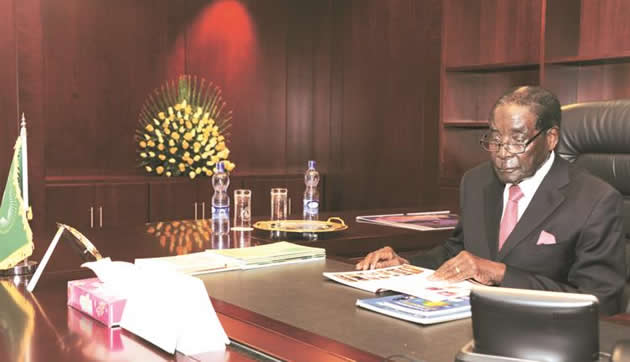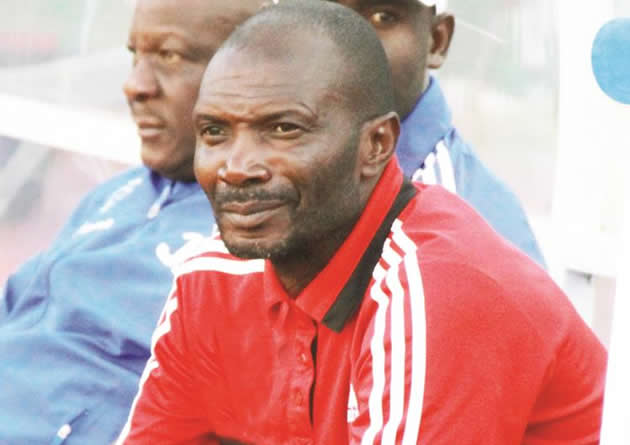Mugabe Tenure: What Africa can expect

 Tichaona Zindoga Political Editor
Tichaona Zindoga Political Editor
On January 30 2015, President Mugabe assumed the chairmanship of the AU, in addition to his current position as the chairman of Sadc. As President Mugabe is, and has been, a man of many surprises throughout the 91 years of his life, Africa should have an interesting year ahead.
SOME have described it as Zimbabwean President Mugabe’s moment in the sun. The veteran leader, who has just turned 91, was elected the African Union chairman on January 30 amid “controversy”, as some Western countries were said to be lobbying African nations to deny Preident Mugabe, who until the appointment was the AU’s deputy chairman, what should have been a routine ascension.
The AU chairmanship is held rotationally among Africa’s five geographical regions. This was Southern Africa’s time and President Mugabe, the current chair of the regional body Sadc, was the region’s choice.
However, during the AU Summit in Addis Ababa at the end of January, news filtered through that there were threats that the continental body risked losing funding from Western donors if President Mugabe was to take the reins.
Close to 75 percent of AU activities are said to be funded by Western “co-operating partners”.
The Zimbabwe delegation expressed guarded optimism that President Mugabe would land the top job, giving him a rare second bite of the cherry, having been the continental body’s chief between June 1997 and June 1998. He was the 31st leader of the then Organisation of African Unity that morphed into the AU in 2002.
When he got the post on January 30 this year, there was jubilation in Zimbabwe. President Mugabe, who was present at the founding of the OAU 51 years ago, as an observer from the Zimbabwean liberation struggle, also received a standing ovation from delegates at the summit.
After the election, his opponents at home and abroad expressed outrage. Some even tried to assuage their dismay by describing it as a ceremonial role. Now, President Mugabe is both the AU chair and Sadc chair, becoming leader of the latter body last August. This presents an image of President Mugabe bestriding Africa from Cape to Cairo.
In more nuanced terms, President Mugabe’s twin positions are significant and he is likely to shape continental politics at least for the coming year. His ideas on resource nationalism, value addition and beneficiation will likely gain currency among AU member states. In fact, his politics could be the reason why certain quarters sought to deny him the continental chairmanship.
Resource nationalism
At the turn of the century President Mugabe championed land reform in his country, which saw the redistribution of land held by 4 500 white commercial farmers to 400 000 black families.
Since 2007, his Government has been pursuing an indigenisation and economic empowerment programme, which seeks to economically empower blacks by giving them a majority 51 percent stake in foreign-owned natural resource-based industries.
These policies have brought President Mugabe a lot of trouble with Western countries. Between 2000 and 2013, these nations slapped economic and other sanctions on Zimbabwe and its officials which were meant to torpedo President Mugabe’s revolution.
The sanctions were largely responsible for the implosion of the Zimbabwean economy between 2005 and 2009. By last year, most of the travel bans on Zimbabwean officials had been lifted by the countries that imposed them, but some of the economic sanctions still remain, particularly those imposed by the USA and UK.
President Mugabe’s twin chairmanship will allow him to export his ideas across Africa. Consider his speech as he accepted the Sadc chairmanship: “Our region,” he said, “has abundant resources, which, instead of being sold in raw form, at very low prices, must be exploited and beneficiated, in order to add value and cost to those products which we eventually export. This process should assist us in our efforts to industrialise, and in turn, increase employment opportunities for our people … Our material resources are capable of playing a pivotal role in the development of all Sadc member states.”
Then on January 30 2015, while accepting the AU chair he said: “Given that the continent is rich in mineral resources, such resources should be seen to contribute meaningfully to Africa’s development. While we continue to exploit the mineral resources, we seem not to have paid enough attention to their value addition and beneficiation. If the present practice of exporting our minerals in their raw form continues, Africa will continue to have people without employment, who languish in poverty.”
He added: “Since the majority of our people depend on the land for sustenance and livelihood, we need to ensure they have access to land and that Africa’s vast agricultural potential is fully harnessed.”
He went on to praise the land reform programme in Zimbabwe as having created an agricultural revolution. The success of the programme has also been noted by the American billionaire businessman and philanthropist, Bill Gates, who in January 2015 lauded land ownership as a vehicle for development.
During his tenure as AU chair, President Mugabe says he will “deliberately provoke” African leaders’ “thoughts to pay special attention” to issues like these. His chairmanship may push Africa into uncharted waters.
African statesman
Part of the interest in President Mugabe’s rise to the top of Africa’s continental body lies in the fact that he is the latest addition to five decades of African leadership, beginning with figures such as Haile Selassie, Kwame Nkrumah and Gamal Abdel Nasser, etc, and continuing to the present leaders like Edgar Lungu and Ian Khama.
He has remained very historically conscious, hence his exhortation and decision to honour Tanzania’s founding president, Julius Mwalimu Nyerere, for his immense contribution towards the liberation of Africa, by naming the newly completed AU Peace and Security building after Nyerere. Some commentators have noted that Africa has “returned to the source” with the rise of President Mugabe to the AU chair.
Perhaps one of the biggest issues that Africa is concerned with in international politics is the reform of the United Nations, which President Mugabe has been a vocal supporter of. Now as AU chair, he will be unrelenting on the issue.
He will also have a lasting legacy if he manages to steer African leaders away from the International Criminal Court and establish an equivalent African Court of Justice. A withdrawal from the ICC, which has been roundly criticised for appearing to only target African leaders, will be discussed at the AU Summit in June.
Already, President Uhuru Kenyatta of Kenya, who was arraigned before the ICC over post-election violence in December 2007, has thrown his weight behind the withdrawal idea and has reportedly pledged $1 million for the yet to be established African equivalent of the ICC.
Agenda 2063
So how will Africa develop in the next 50 years? This is the question that African leaders have sought to answer by way of a blueprint dubbed “Agenda 2063”, which has been adopted by the AU. President Mugabe will oversee its implementation during his tenure as AU chair.
Foreign Minister Simbarashe Mumbengegwi explained at a Press briefing in Addis Ababa that Agenda 2063 “is an all-embracing blueprint for Africa’s development over the next 50 years. This programme is going to be implemented in five-year, 10-year plans; and the implementation of the first 10-year plan is going to start this year under the chairmanship of President Mugabe”.
The coming year will be significant as it will show whether President Mugabe is the right man for the job or not; and whether he will bring his influence to bear on the continent. Alexander Rusero, a political commentator in Harare, believes President Mugabe’s role will change the outlook of the AU simply because he will be involved in a lot of diplomacy. Rusero dismissed the speculation that the AU role is ceremonial. “During (President) Mugabe’s tenure, members of the AU will sign binding agreements and protocols to which each state must abide,” he said, adding: “President Mugabe will be steering these deliberations and therefore his role cannot be dismissed.”
Academic Dr Ibo Mandaza, though, believes that what Africa will look like in the coming year depends less on President Mugabe and more on how the continental leadership fares. “There is too much expectation being placed on the President,” Dr Mandaza said.
To him, Africa is in the doldrums in terms of international affairs. “The AU has lost dynamism and this has to do with the position of Africa in international affairs,” Dr Mandaza argued.
“The nature of globalisation since the end of the Cold War has relegated Africa to a position of little or no influence in international affairs and the AU resultantly has little significance globally,” he continued.
Sceptics will be waiting keenly to see how President Mugabe will fare as AU chairman. But as President Mugabe is, and has been, a man of many surprises, Africa will have an interesting year ahead.
- This article is reproduced from NewAfrican magazine









Comments